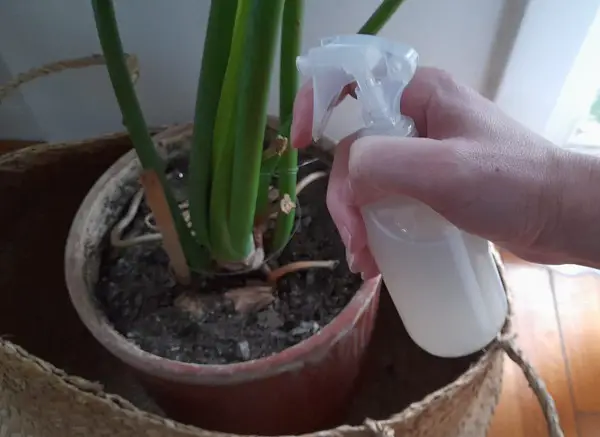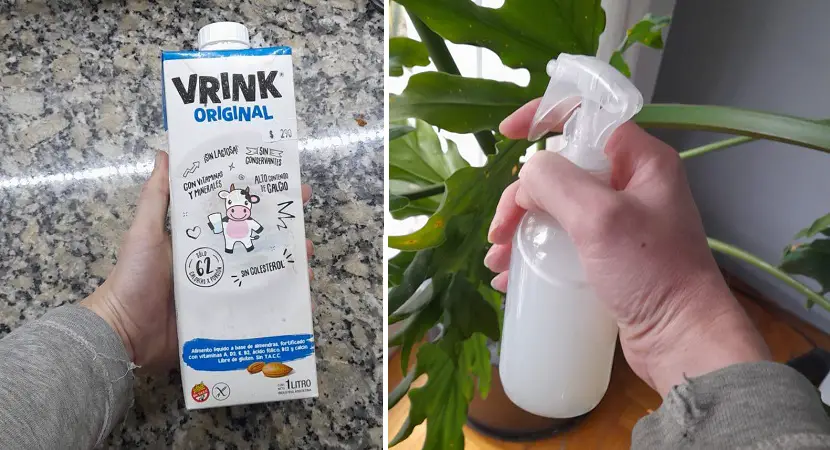Using milk for your plants offers several benefits, and here are four ways you can utilize it to keep your plants healthy and thriving:

Fungicide:
Milk acts as a natural fungicide, combating various fungi that may affect your plants, including powdery mildew. To prepare a fungicidal solution, mix 10% milk with 90% water, then spray it onto the affected plant, focusing on the leaves, stems, and fruits. Repeat this process every two weeks to effectively control fungal growth.

Fertilizer:
Milk can also serve as a fertilizer, enriching the soil with beneficial microorganisms that support plant growth. Mix 1 part milk with 5 parts water to create a fertilizer solution. Water the soil directly with this solution every two months, particularly during warmer months, to enhance soil productivity and plant health.
Insecticide:
Milk works as an effective insect repellent, keeping pests like mealybugs, whiteflies, and ants away from your plants. Prepare a solution using the same milk-to-water ratio as for fungicide, then spray it over the entire plant, including the soil. Repeat this application once a month to deter insects and protect your plants.
Cleaning agent:
Milk can be used as a gentle cleaning agent to remove dust, grease, and other debris from plant leaves, restoring their shine and allowing them to better absorb sunlight for photosynthesis. Apply a small amount of the milk-water solution onto absorbent paper or cotton and gently clean each leaf to remove dirt and debris, revitalizing their appearance.
By incorporating milk into your plant care routine, you can naturally protect and nourish your plants, promoting their growth and overall health. With its fungicidal, fertilizing, insect-repelling, and cleaning properties, milk offers a holistic solution for plant care.



